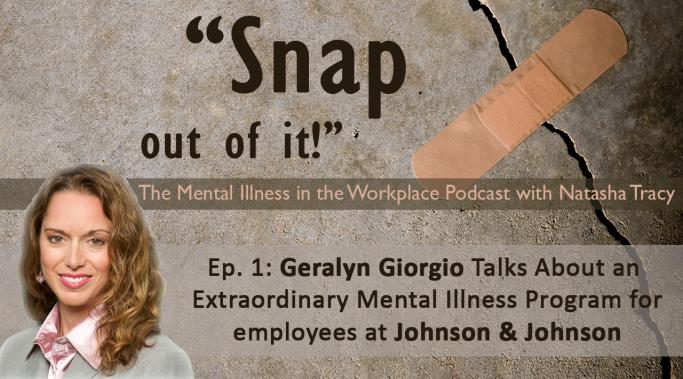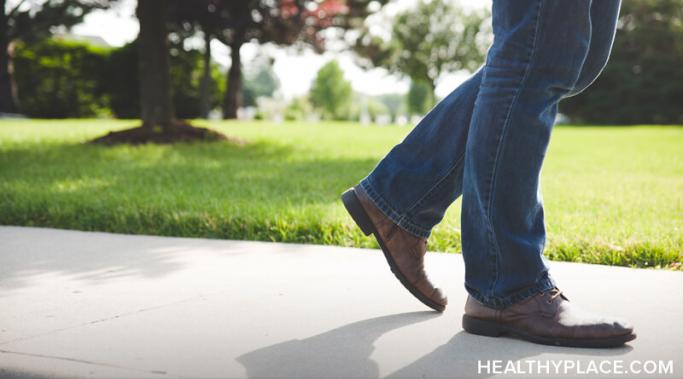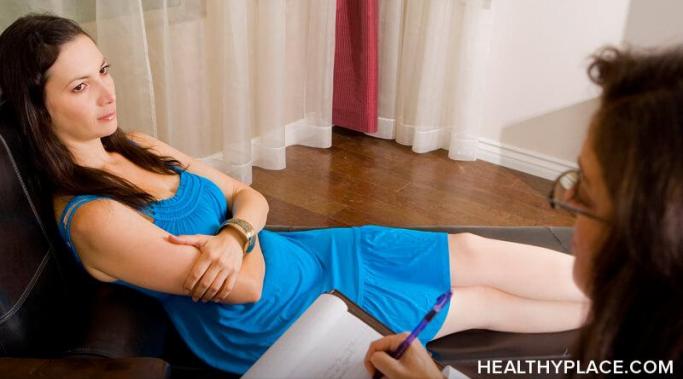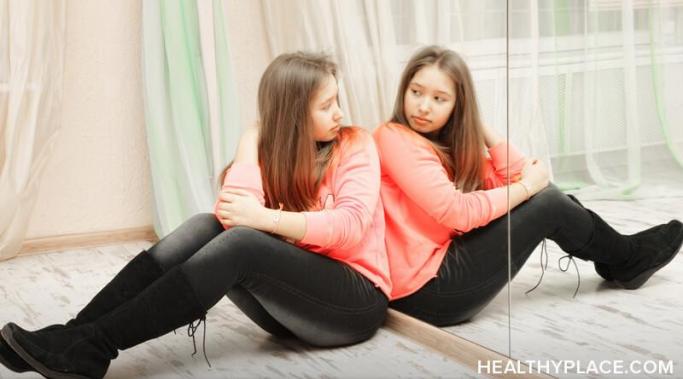Blogs
Verbal abuse can create numerous harmful outcomes during the abuse and for years afterward. Unfortunately, self-isolation is just one verbal abuse side effect. Many victims will keep themselves away from others while in an abusive situation, and some, like me, continue this behavior even after breaking free.
Welcome to a syndication of "Snap Out of It! The Mental Illness in the Workplace Podcast with Natasha Tracy." Today, "Snap Out of It!" talks with Geralyn Giorgio about an incredible program she created for employees with mental illness and employee caregivers at Johnson & Johnson. We talk about her personal experience with mental illness, why she’s driven to help others affected by mental illness, and how the group she created can be rolled out in your workplace.
Today, I'd like to wish you all a sincere farewell, as this is my last post for the "Building Self-Esteem" blog. I've been thinking about my work here at HealthyPlace and would love to leave you with a few reflections.
If you have experience with trauma-informed mental health care, it's quite possible that you're also familiar with eye movement desensitization and reprocessing (EMDR) therapy. This therapy is an intervention used to help the brain resolve unprocessed traumatic memories, as well as the thoughts, emotions, beliefs, and physical reactions or sensations connected to those memories. But, is EMDR therapy useful for eating disorder treatment? That's a nuanced question without a one-size-fits-all answer. However, as someone who is currently in the thick of EMDR sessions myself, I want to examine its potential benefits for eating disorder recovery.
For almost a year, I have been going to therapy to work through the trauma associated with the debilitating episodes of acute panic and anxiety I suffered late in the summer of 2021. In recent weeks, I have been practicing my anxiety-mitigation strategies and testing my resilience to anxiety triggers in preparation for a return to the location where the apex of the episodes occurred. With extreme gratitude, I'm happy to say that revisiting the place was a tremendous success.
I recently bought a deck of cards full of question prompts, and one of the first question cards I drew was, "What is your vice?" The answer that surfaced for me was familiar: food. I will always be conscious about food, even in times of ease in my recovery. Sometimes this reality is frustrating, and I envy the people around me who seem to enjoy food without stress or guilt. I also learn about the depths of myself from the healing process. The lessons I've taken from binge eating disorder remind me that there's always more to uncover about myself and eating disorders like binge eating disorder (BED).
Up to this point in my life, addressing my mental health struggles and seeking recovery has been personal work, and I've never been to therapy to help with mental health conditions. I’ve learned about my illnesses and done self-reflection and soul-searching. It’s been by myself, except for a stint of attending peer support groups and being a part of online peer support groups. During all this time, I’ve wondered, would I benefit from therapy for my mental health?
Facing a verbally abusive situation is emotionally and physically draining. In addition, many victims of abuse find that alcohol plays a factor in how their circumstances play out daily. As someone who lived in a relationship of verbal abuse, alcohol, and substance abuse, I found the combination of these outside elements intensified an already negative situation.
It's one thing to say that the opinions of others don't matter, but actually believing these words to be true is another beast entirely. Growing up, people had a bad habit of telling me who I was, what I offered, and even who I was going to be. Sometimes I would brush these comments off, but I would mostly let them sit and fester until the line between what I believed and what others believed of me blurred. I was susceptible to those thoughts and expectations of others because I lost touch with my sense of self.
I will never forget one specific breakfast during my time in residential treatment. An on-staff clinician supervising the meal told me to throw out my pancakes and grab a new batch. When I asked her why, the answer was confusing, but as with most rules at this inpatient facility, it left no room for further questions. "You spread peanut butter on your pancakes—that's a food ritual," she replied.









